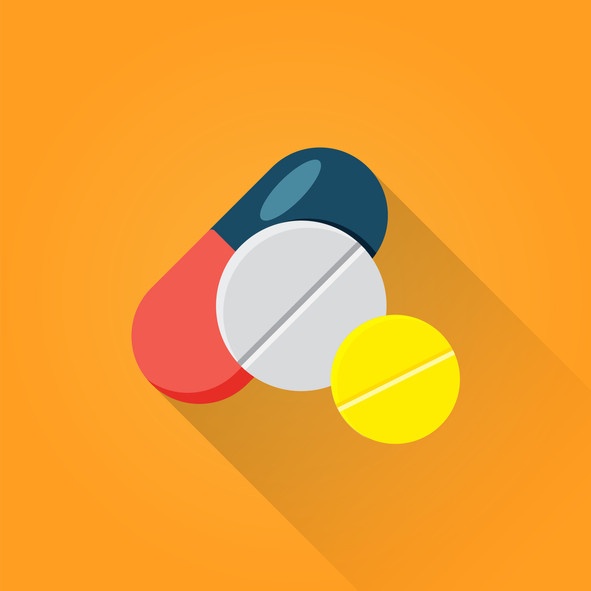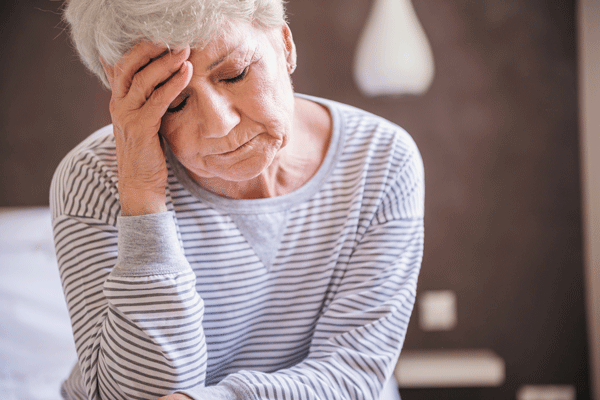
5 timeless habits for better health

What are the symptoms of prostate cancer?

Is your breakfast cereal healthy?

When pain signals an emergency: Symptoms you should never ignore

Does exercise give you energy?

Acupuncture for pain relief: How it works and what to expect

How to avoid jet lag: Tips for staying alert when you travel

Biofeedback therapy: How it works and how it can help relieve pain

Best vitamins and minerals for energy

Should you take probiotics with antibiotics?
Mental Health Archive
Articles
Should we screen all adolescent girls and women for anxiety?
Children, teens, and the safety of psychotropic medicines
While many children and teens are prescribed psychotropic medicines to treat conditions like depression or attention deficit hyperactivity disorder (ADHD), a comprehensive look at safety data has been lacking. A recent review of multiple studies synthesizes evidence on the side effect profiles of many widely used medicines.
How to recover from post-traumatic stress disorder
Normally associated with veterans, PTSD can also affect people of all ages who have experienced any kind of trauma.
Post-traumatic stress disorder (PTSD) is a severe and potentially debilitating mental health disorder that affects people who have experienced or witnessed a traumatic event. PTSD often occurs in combat veterans, but it can also strike older adults, and especially men.
About 70% of older men have been exposed to trauma at some point in life, according to the U.S. Department of Veterans Affairs. Many of these traumatic events are accidents (or near misses), injuries, or serious health issues.
Another strategy to cope with life’s dark times
News briefs
The United States is reporting increasing numbers of "deaths from despair" (suicide, drug overdose, or alcohol poisoning). Antidepressants and psychotherapy are often used to help people who are having a hard time coping with extremely difficult times and who are at risk for dying because of it. A recent Harvard study found that another strategy may also play a part in countering despair: attending religious services. The study, published online May 6, 2020, by JAMA Psychiatry, evaluated self-reported religious service attendance among 110,000 white, middle-aged men and women who were followed for about 30 years. Compared with never attending religious services, going at least once per week was associated with a much lower risk of death from despair: 68% lower for women and 37% lower for men. Researchers say that religious participation — regardless of affiliation — may serve as an antidote to despair and provide a sustained sense of hope, meaning, peace, and positive outlook. Also, faith-based organizations promote social engagement and connectedness and preach against self-injury and substance use. The study was observational and does not prove that regularly going to a religious service prevents death from despair. However, we know from other Harvard research that using religion to cope is associated with improved outcomes for people with severe psychiatric illness. Due to the pandemic, it may be difficult to attend your usual place of worship. Consider attending services via teleconference. If you attend in-person services, wear a mask and try to stay six feet away from others.
Image: © fstop123/Getty Images
More touching can build a stronger relationship
In the journals
Regular hugs and touches can help strengthen your relationship, suggests a study in the June 2020 Journal of Social and Personal Relationships.
Researchers explored the effects of nonsexual intimate touch, such as hugging, holding hands, and cuddling, among 184 couples. The participants completed separate self-reports that recorded the amount of touching in their relationship, their satisfaction with touch, and their overall relationship status.
Brain health and walking speed often decline together
In the journals
Slower gait speed and cognitive decline may be related, according to a study published online April 12, 2020, by the International Journal of Geriatric Psychiatry.
Scientists recorded the gait speed and cognitive health of 370 people in the San Antonio Longitudinal Study of Aging (SALSA). Cognitive health was measured with a test that assessed orientation to time and place, attention, recall, language, and other aspects. Gait speed was measured with a timed 10-foot walk.
Depression and heart disease: A two-way street
Watch for the warning signs of depression, which is often missed in people with heart disease.
Image: gpointstudio/Thinkstock
All people have days when they feel sad, gloomy, or down in the dumps. But if those feelings last for weeks and you gradually stop feeling hopeful or happy about anything in your life, you may have depression. Like heart disease, depression is common, so it's not unusual to have both conditions together. In fact, depression is about twice as likely to occur in people with heart disease compared with the general population. And people with depression face a heightened risk of heart disease.
"It's really important for people to be aware of this link and to get treatment for depression, because it can be very debilitating," says Dr. Christopher Celano, a psychiatrist at the Cardiac Psychiatry Research Program at Harvard-affiliated Massachusetts General Hospital.
What should you do during a psychiatric medication shortage?
With the increased stress caused by the the COVID-19 pandemic, prescriptions for medications to treat mental illnesses have increased, leading to potential shortages of certain psychiatric medications. This means that some people might need to discuss their options with their prescribing clinician.
How stress can harm your heart
Stressful experiences are hard to avoid and impossible to predict. But taking steps to bolster your resilience may help.
The palpable stress stemming from the COVID-19 pandemic has made things once considered stressful — such as deadlines or traffic jams — seem pretty trivial in comparison. But while you may not be able to avoid the stressful situations that come your way, there are ways to mitigate your body's response to those events.
So far, the evidence that stress management strategies can protect your heart is limited but growing. Yet there's no doubt that stress contributes to heart problems. "The link between stress and cardiovascular disease is well established," says cardiologist Dr. Ahmed Tawakol, an associate professor of medicine at Harvard Medical School.

5 timeless habits for better health

What are the symptoms of prostate cancer?

Is your breakfast cereal healthy?

When pain signals an emergency: Symptoms you should never ignore

Does exercise give you energy?

Acupuncture for pain relief: How it works and what to expect

How to avoid jet lag: Tips for staying alert when you travel

Biofeedback therapy: How it works and how it can help relieve pain

Best vitamins and minerals for energy

Should you take probiotics with antibiotics?
Free Healthbeat Signup
Get the latest in health news delivered to your inbox!
Sign Up











